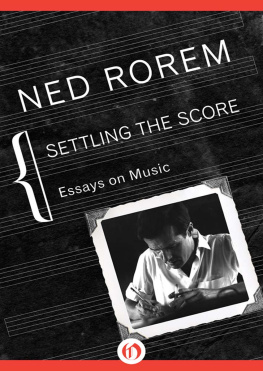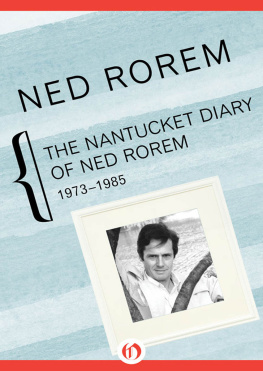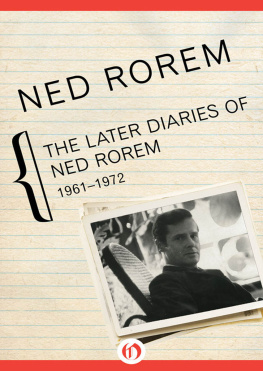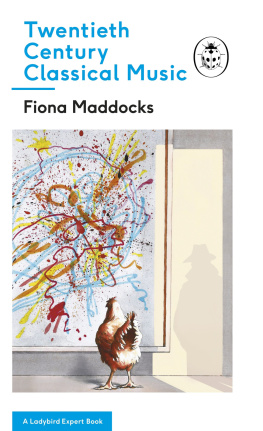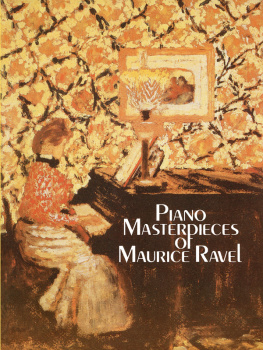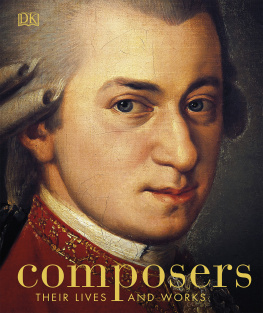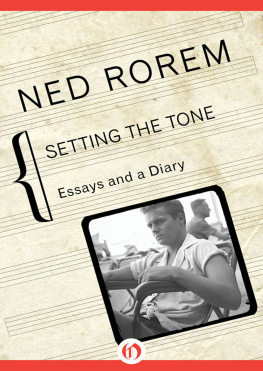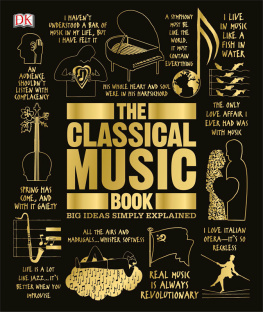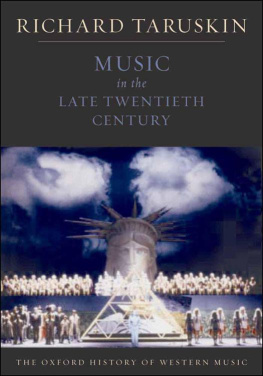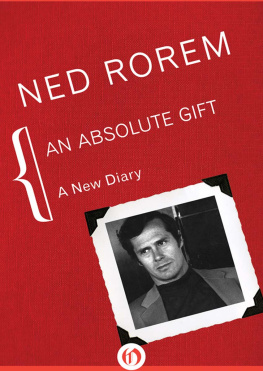NED ROREM

SETTLING
THE
SCORE
Essays on Music

LIVING WITH GERSHWIN
Although I was only thirteen when he died in July of 1937, George Gershwin had already grown so crucial to the collective unconscious that half the world seemed to stop. Five months later when Maurice Ravel died (I was fourteen now), the other half stopped. The realities of love and death were suddenly as real as they would ever become.
Ive just listened nonstop to fifty-three songs by George and Ira Gershwin, and the effect is no less exhilarating than if the songs had been by Robert Schumann or Charles Ives or indeed by Ravel. Georges tunes are as memorable, Iras texts as apt as those of the truest songmakers of yore. Ella Fitzgerald, the wistful baritone (shes as content cooing below the staff as sopranos are fifteen steps higher) proves as ideal a match for this team as Lotte Lehmann and Donald Gramm and Maggie Teyte were for the others. How she tints the tones (never an irrelevant ornament, only an occasional tilde) one by one, like those gray roses blushing toward pink in early Technicolor movies, then blends them into a bouquet of melody that evokes, over and over and over, your own first love. For the songs are virtually always about lovelost, found, longed for, disposed ofnever about death. Death will come only with Porgy and Bess.
Hearing the songs in one fell swoop, most of them familiar as family, I realized Id been living with Gershwin since the age of reason. Actually each of us lives daily with this most famous of modern composers, whose art surges forth from Musak all over the globe. Weaned on him, like most kids of the swing era, I never differentiated between Gershwins basic worth and Ravels but took him for granted (as I did Ravel) without analyzing wherein lay his charm and craft. At ten, thrilled by Paul Whitemans theme song, I bought Rhapsody in Blue at the store next to the Frolic moviehouse on Chicagos Fifty-fifth Street (sheet-music shops, now all but extinct, grew all over town then), and it still reposes on the piano, with my name childishly scrawled upon that friendly blue-and-gray Harms edition. Two years later my parents, ever alert to the Urban League and other racial betterment groups, came home late one night, flushed and dazzled and forever changed by the local premiere of the Negro spectacle Porgy and Bess. I envied them. Summertime took its place on the piano next to Rhapsody in Blue. Over the next decade, while learning by schooling the concert repertory from Couperin to Copland, I was learning by osmosis the words and airs of every Gershwin song. In the mid-1940s, as pianist for Eva Gauthier, I was often regaled by tales about another pianist she once hired, the young George Gershwin, who, on a program that began with piano-vocal excerpts from Schoenbergs Gurreleider, accompanied Madame Gauthier in Stairway to Paradise, Innocent Ingenue Baby, Swanee, and Do It Again. They brought down the housewith nobody questioning the legitimacy of such odd bedfellows. In 1948 I won the George Gershwin Memorial Award for my Overture in C (the piece did not deserve the prize, but I did), the premiere of which, under Mishel Piastro and the New York Philharmonic, was my first brush with the big time. On the program were Alec Templeton playing Concerto in F, Avon Long scatting It Aint Necessarily So, and Oscar Hammerstein, who in front of the audience handed me the award money, which was spent on a ticket to France where I stayed ten years. By the early 1950s, now myself an American in Paris, I was catching on to the Gershwin songs by their local plumage (Quelquun madore for Somebody Loves Me, Journe brumeuse for A Foggy Day), which seemed as smooth in French as in Iras spirited English.
Iras spirited English concerns me here. If as the stuff of good songs his words (called lyrics in Tin Pan Alley) dont quite vie with Goethes, they are less bathetic and a good deal tighter than some of the poetasting used by, say, Schubert and Faur. Witty, too, and ingeniously contrived. In the whole catalog I find but one trite line (Oh if we ever part/Then that might break my heart), and but one strained inversion (And so all else above/Im waiting for the man I love). Its fun to play games of comparison (Youve got what gets me/What gets me youve got, writes Ira Gershwin in Girl Crazy; I adore what you burn; you burn what I adore, writes Henry James in The Tragic Muse), or ponder the implications of lines like I want to bite my initials on a sailors neck or All the sexes from Maine to Texas, which seem every bit as equivocal as the Erlknig. Ira likes to drop names such as Schopenhauer as something de trop when Eros is near (who disagrees?), or to suggest that any Russian play will guarantee fewer clouds of gray than when Eros has gone. The antiliterary Ira scores literary points about love, even as the learned Prioress in Poulencs Dialogues des Carmlites loses meditational points about death when she realizes in her agony that a lifetime of prayer comes to naught in the end.
Iras points are set to music by George according to the conventions of his day. He doesnt stretch the vocal line beyond a major tenth; is not melismaticthat is, doesnt use more than one note to a syllable (neither does Poulenc, his exact contemporary); and the shapes of each song are pretty much the same: a casual prelude succeeded by the requisite thirty-two-bar refrain of a-a-b-a. Yet there is as much varietyrhythmic, chordal, speedwiseas in the vocal output of Ravel. If a mannerism appears common from song to song, its the tendency toward pentatonicismarches confected from black-key rambling. Take at random The Lorelei, They All Laughed, Maybe, The Half of It, Looking for the Boy, and see how each is built from the same rising sequence. Also the so-called blue note, a lowered third or seventh that was jazz in the 1920s (Darius Milhaud, striving toward timeliness, used more blue notes in his Cration du monde of 1923 than did Gershwin in his Rhapsody of the same year), might seem overused were it not that each impulse takes on its own identity, then soars with a virile energy evoking a world as vulnerable and vast as the current world seems cool and stunted. For one belonging to both worlds, I find that every song still sends shivers of excruciating nostalgia up my spine, something no other music, past or present, seems to do anymore.
Ive gone on at some length to show that George Gershwins songs are no different in quality from those of the other named composers. But they are profoundly different in kind. His are popular, theirs are classicalthe two halves of the world that seemed to stop for awhile, at least for me, back in 1937. These two genres have forever traveled parallel paths, but so distant as to be not even rivals.
P opular and classical, of course, have come to be meaningless categories, the one referring to being well liked, the other to a specific period in musical history. Some classical music is in fact popular, some pop songs have turned into classics. Still, I shall continue to use these terms here, since most readers know perfectly well what Im talking about, but will redefine the terms as variable and invariable. Popular music is variable in that notes are improvised according to the players mood. Classical music is invariable in that the same notes are played on all occasions. If in fact the two forms of music do sometimes trade devices (slick arrangements on the one hand, aleatoric cadenzas on the other), they nonetheless remain psychologically separate in the public ear.

